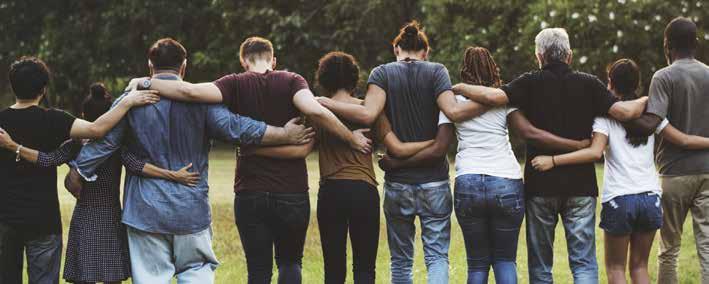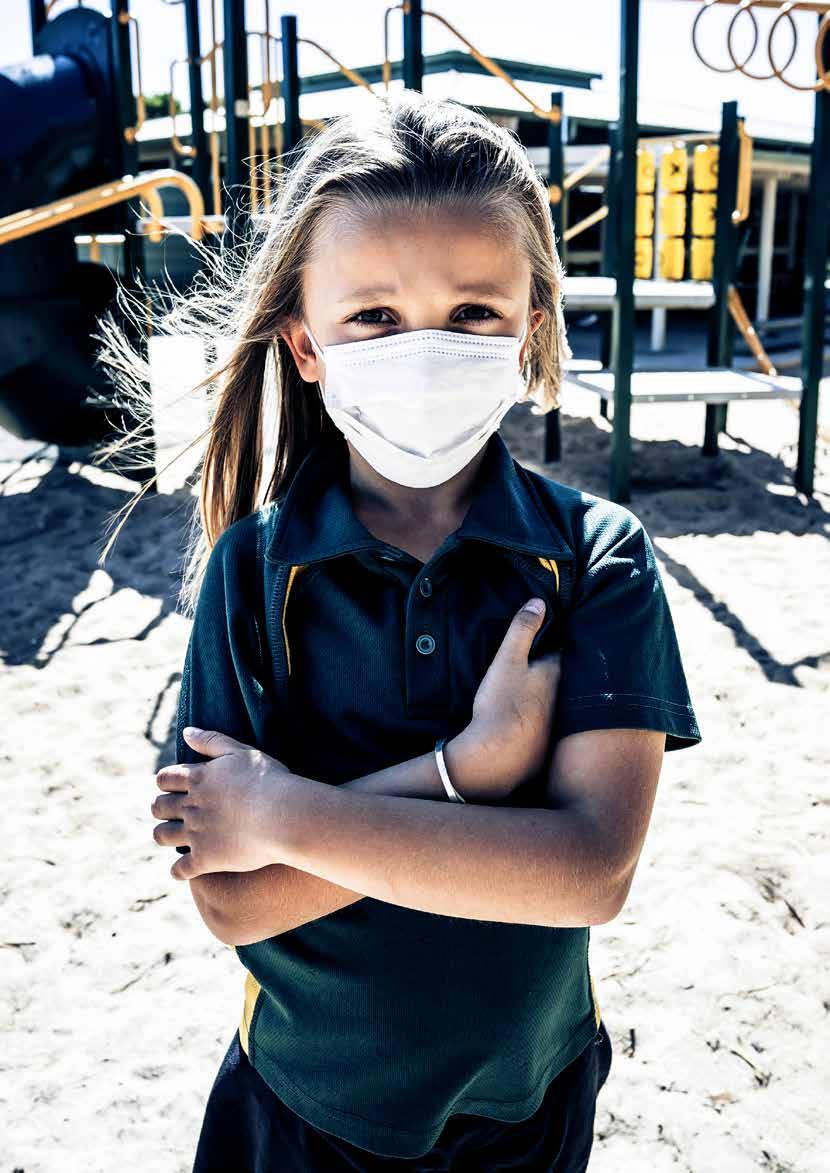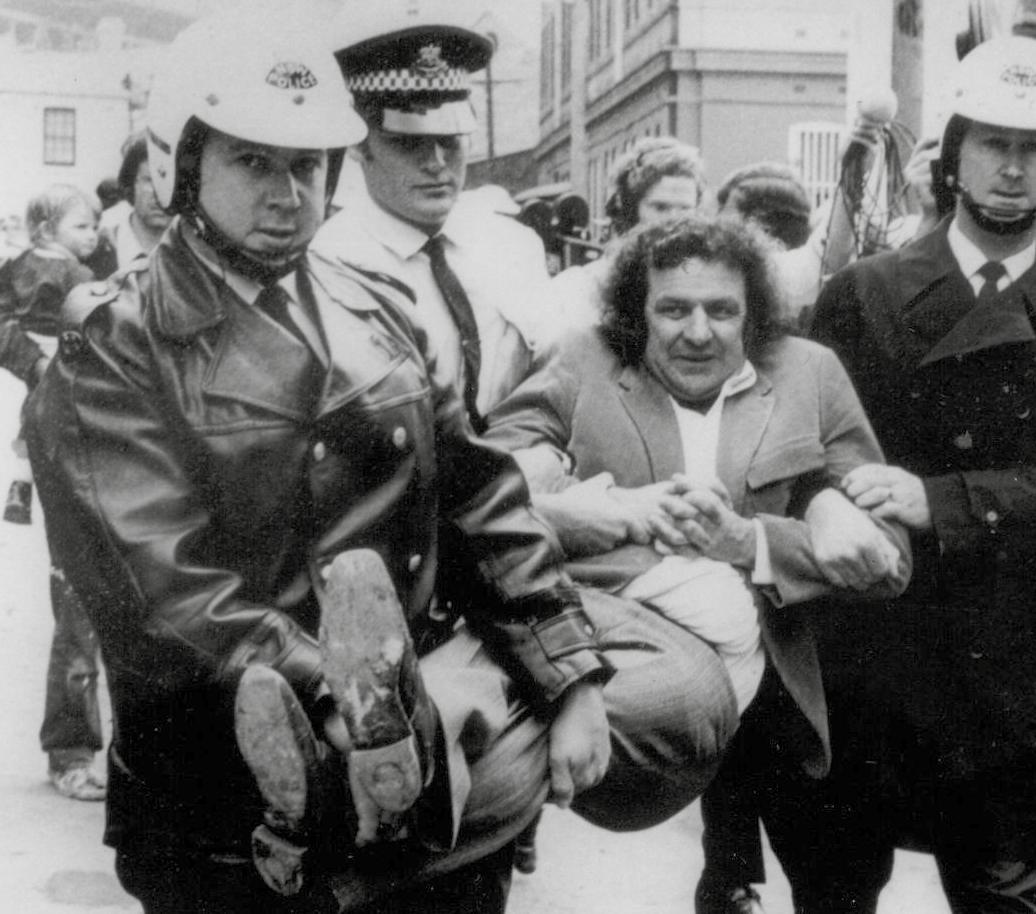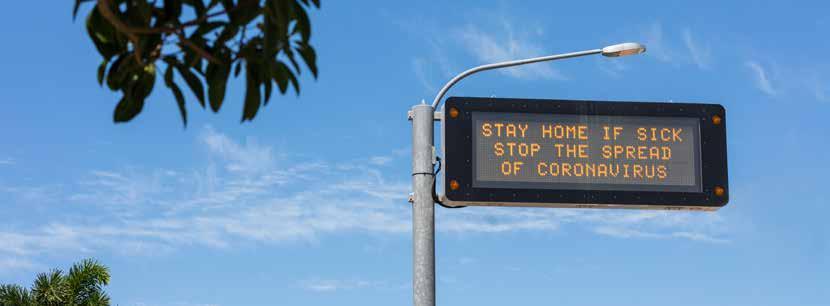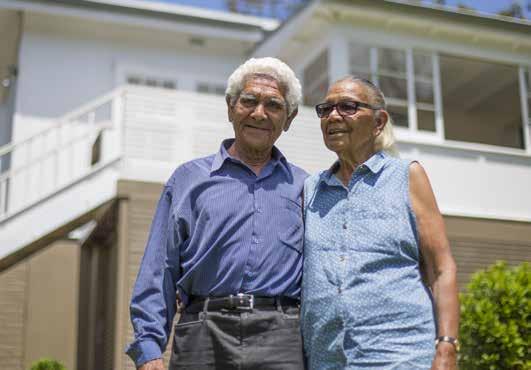
8 minute read
Australia’s mental meltdown
Some of us were better able to cope at self-isolating than others. If you were a homebody before the lockdown, someone perfectly comfortable in their own company, chances are you adapt ed fine. If, however, you’re normally a social butterfly, flitting from pillar to post, you wouldn’t have responded as well to having your wings clipped.
Australians were not alone in their self-isolation. In April, half of the world’s population had their move ments curtailed to some degree or another. Tens of millions of lives changed beyond the realm of normalcy. As well as the confinement, people have had to cope with financial inse curity, family separation, and feelings of bereavement. To cap it all, we’ve had legitimate health fears to endure.
Advertisement
In March, crisis support and suicide prevention service, Lifeline, recorded the highest volume of calls the organ isation has ever had to deal with in a single month — 90,000, or one every 30 seconds. By Easter, the COVID lock down had caused widespread mental meltdown. According to Lifeline CEO Brent McCracken, Good Friday was “the biggest day” in the organisation’s 57-year history.
Speaking to reporters, McCracken said: “We saw people struggling with loneliness, and the isolation, exac erbating the circumstances they’re in.” When asked who was reaching out to the support service, he simply answered “everybody” — “[People] losing their business, losing their job, finding themselves without other people around them, having a lack of
AUSTRALIA’S MENTAL MELTDOWN ALMOST OVERNIGHT, THE CORONAVIRUS CAUSED UPHEAVAL TO OUR DAILY LIVES. AS PEOPLE BEGAN TO FEEL IMPRISONED IN THEIR OWN HOMES, THE MENTAL HEALTH OF MANY BEGAN TO FRAY. CHRISTOPHER KELLY REPORTS.
social contact,” he said. “Many are facing circumstances they could never have envisaged they would be in. Many are feeling their life is becoming worthless.” While a lot of the callers to Lifeline included people with chronic mental health issues aggravated by the crisis, the numbers also included a new category: people who’d never reached out for mental health support before.
Meanwhile, data from Kids Helpline showed that an Australian child was calling the counselling service every 69 seconds. “They are worrying about and struggling with the impact this is having on their daily lives — whether that is school or university closing, not being able to do team sport or go to the gym, travel and holiday, as well as not being able to see their friends or boyfriend or girlfriend,” said Kids Helpline CEO Tracy Adams.
To help people cope with the COVID crisis, mental health non-profit, Beyond Blue, launched a 24/7 Coronavi rus Mental Wellbeing Support Service. Beyond Blue CEO Georgie Harman said the move was in response to the organ isation recording a 30 percent spike in contacts since the crisis began — on some days, as many as one in three calls were COVID-related. “People are telling us they’re feeling overwhelmed, worried, lonely, concerned about their physical health and the health of friends and loved ones, and anxious about money, job security and the economy,” said Harman.
During the lockdown, researchers at Monash University launched a study to better understand COVID-19’s impact on Australians’ mental health. When surveying 1,200 people about how they were coping during the crisis, results showed that most participants recorded mild levels of anxiety and depression, while 30 percent registered moderate to high levels. “In normal times,” said senior research fellow, Caroline Gurvich, “the majority of people fall in the normal range, so we are seeing elevated levels of depression and anxiety.” A YouGov poll conducted over Easter found more than half of Australians (57 percent) were feeling stress because of the COVID crisis. More than three-quarters of respondents (77 percent) said they were anxious about not being able to see their families; 71 percent were unhappy about not being able to hang out with friends; while 60 percent were worried about financial insecurity.
Professor Ian Hickie is Co-Director of the Brain and Mind Centre at the University of Sydney. Appearing on a university podcast — Sydney Ideas — Hickie said the coronavirus had threat ened two of the “fundamental pillars of mental health”. “One’s personal autonomy. Being in control of your life by knowing what the risks are and taking appropriate actions to minimise the risk. The other is social connection. Humans are social animals. If we have strong social connection, we thrive.” Both pillars came swiftly tumbling down when the coronavirus reached Australian shores.
For mental health expert, Profes sor Jane Fisher, the overriding theme during the COVID lockdown was one
of loss. Writing in an essay — Coronavirus: recognising disenfranchised grief amid COVID-19 — Fisher says Australians lost their liberty, their autonomy and their agency as everyday activities became restricted, even precluded. Privacy was lost as people became scrutinised increasingly closely for adherence to health advice. At the same time, social partici pation was lost through isolation and seclusion.
Many people’s occupational identities were also lost and, with them, a sense of purpose and meaning. “Losses such as these are profound,” said Fisher, “and associated directly with demoralisation and depression.” Also lost — trust in others. “Everyone is suspected of being infected, with the potential to put others at risk of contracting the illness.” Trusted relationships — which are the glue to psychological wellness — became diminished. “With so much loss going on, it can be hard to see the positives in such a situation,” said Fisher.
While some of the losses experienced during the crisis are readily understood — such as being prevented from visiting vulnerable family members, or the death of a loved one — other losses can go unrecognised, perhaps because they seem trivial, or because they can’t be discussed because of stigma and shame. “The process,” said Fisher, “is more difficult because unrecognised losses tend not to attract increased social support or rituals. They can be isolating and induce powerlessness, rather than the problem solving that is needed to reduce the psychological pain.”
The stress levels, according to a research paper published in The Lancet Psychiatry, will likely have a long-lasting impact on people’s mental health. Prompting a response, say the researchers, that must “extend beyond general mental health policies and practices”. The researchers continued: “The mental health consequences are likely to be present for longer and peak later than the actual pandemic.”
Professor Richard Bryant of UNSW Sydney agrees: “Prior pandemics such as SARS have shown that mental health issues spike during outbreak and, more worryingly, can lead to longer-term problems well beyond the pandemic itself.” To cope with an increase in cases, mental health services will need to embrace new processes and treatment plans. “These services need to adopt innovative treatment formats to the potentially large numbers of people requiring help and targeting people who traditionally do not seek mental health assistance,” said Bryant.
People’s mental health will be further strained by what one economist has described as “a very sharp, strong recession” forecast to head our way. And, as we’ve witnessed during previous economic depressions, it will be the marginalised in the community that will suffer the most. Professor Hickie believes that up to 30 percent of Australia’s population could become “immediately impacted” by an economic collapse. “We’ve seen from previous economic downturns that the impact on the young, the impact on the disadvantaged, the impact of those with mental illness, the impact on the homeless, is profound,” he said.
Despite the tough road ahead, Professor Hickie remains hopeful that this exceptional period in Australia’s history could very well be a turning point in the right direction. While the coronavirus pandemic remains a major threat to our physical and mental health, it may yet save Australia’s social fabric. “Our social fabric historically has been very strong. Many of us worry in recent years that it may have been seriously undermined by divisive politics and interna tional anti-globalisation, anti-community separatism,” said Professor Hickie. “This is a test. It’s also an opportunity, in fact, to put that social fabric back together.” Read Coronavirus: recognising disenfranchised grief amid COVID-19 in full on the Monash University’s online magazine, Lens.
MANAGING YOUR MENTAL HEALTH With the evolving tensions surrounding COVID-19, the Mental Health Foundation Australia issued the following advice to help people cope with anxiety and stress.
Mental Health Foundation Australia believes that this is the time to show solidarity as a community. Reactions of concern, anxiety, fear, sadness, anger and denial are completely normal. It’s important to remain calm and practical and continue with your usual regime as much as you can. If you are in a position of self-isolation, this may be the time to finally watch that TV show you’ve been wanting to see or read a book you’ve been meaning to get around to. It is in times like this that we must take care of ourselves and those around us to recover from this crisis.
Remind yourself that this is a temporary period of isolation which will be over soon. Acknowledge that stress can impact anyone during and after such adversity and it is understandable to be stressed right now. While you might feel uncertain right now, it is important you have faith in the competency of the scientific community to give you the best advice and care for you and your family’s heath. Connecting more with your cultural identity and having faith in your own ability to get through this tough time will help boost your resilience.
Maintain a realistic and practical perspective. Don’t expect yourself to be excelling in work or study right now or staying at your normal standard of productivity. Knowing you will overcome the crisis and giving yourself time to relax and recover in this time period is vital. This is an opportunity to slow down and reflect on what makes you happy in life. If you are able to help others and provide them with comfort, do so. Empathy and compassion strengthen our sense of community.
If you need mental health support call the Mental Health Foundation on 1300 643 287. Beyond Blue can be contacted on 1800 512 348. The Lifeline number is 13 11 14. Kids Helpline can be reached on 1800 55 1800.

